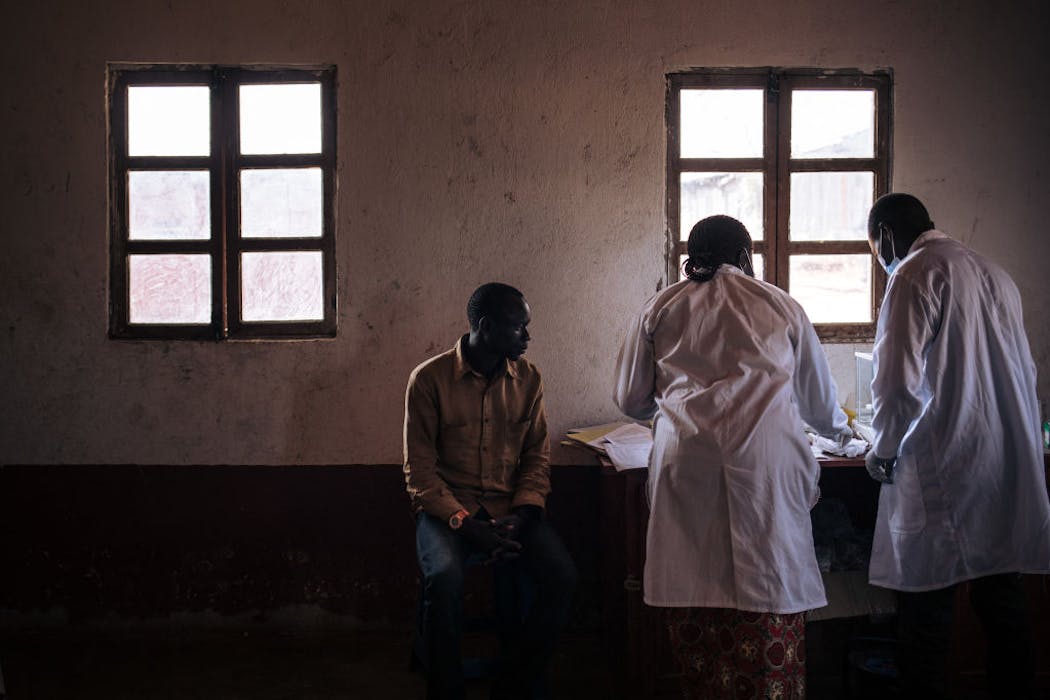Billions of dollars, decades of progress spent eliminating devastating diseases may be lost with undoing of USAID
- Written by Sarah Greene, Instructor in Pediatrics and Infectious Diseases, Washington University in St. Louis
 The parasites that cause river blindness and elephantitis have been afflicting people for centuries. Alexis Huguet/AFP via Getty Images
The parasites that cause river blindness and elephantitis have been afflicting people for centuries. Alexis Huguet/AFP via Getty ImagesIn Greek mythology, King Sisyphus was condemned by the god Zeus to spend eternity rolling a boulder up a hill only to have it roll back down, having to start anew every day.
His story captured our attentionas...

